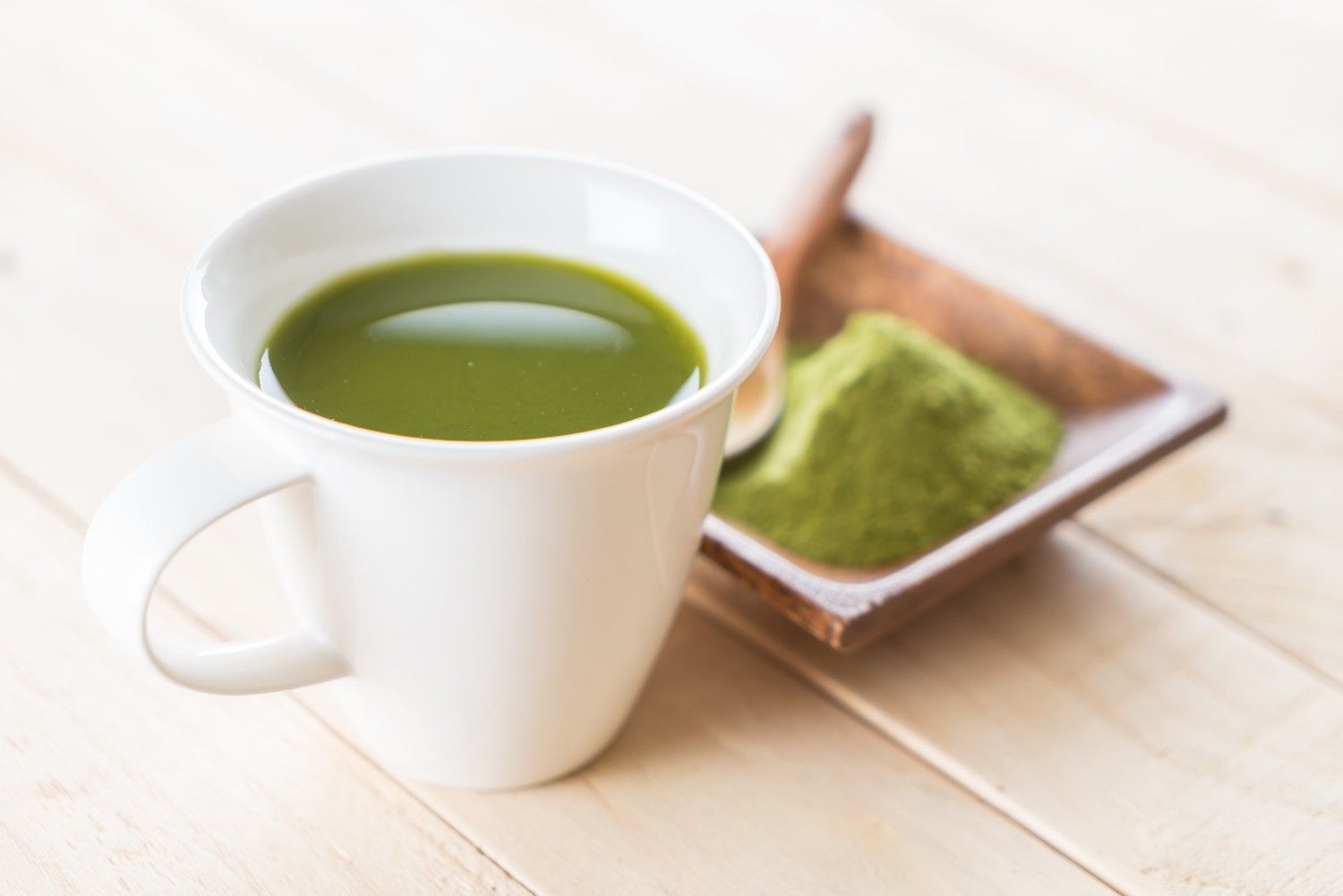Did you know that a simple cup of matcha could be more than just a trendy drink? Matcha, a finely ground powder of specially grown green tea leaves, has been cherished for centuries not just for its vibrant color and unique flavor but also for its remarkable health benefits. Among these benefits, one of the most intriguing is its potential to support hormone balance. If you’re curious about how this green elixir can help regulate your hormones, let’s dive into five compelling ways matcha can naturally promote hormonal harmony.
Contents
1. Rich in Antioxidants
What’s the Big Deal About Antioxidants?
Antioxidants are compounds that protect your cells from damage caused by free radicals. Matcha is particularly rich in a type of antioxidant called catechins, especially epigallocatechin gallate (EGCG). Studies suggest that EGCG can help reduce oxidative stress, which is crucial for maintaining hormonal balance.
The Connection to Hormones
Oxidative stress can lead to hormonal imbalances, particularly affecting estrogen and testosterone levels. For instance, a study published in the Journal of Nutritional Biochemistry found that EGCG can inhibit the activity of aromatase, an enzyme that converts testosterone into estrogen. This is particularly relevant for men looking to maintain healthy testosterone levels.
A Personal Take
I’ve noticed that when I incorporate matcha into my daily routine, I feel more energetic and balanced. While I can’t say it’s a magic potion, the antioxidant boost does seem to make a difference in how I feel throughout the day.
2. Supports Stress Reduction
Stress and Hormones: A Complicated Relationship
Let’s be real: stress is a major disruptor of hormone balance. Chronic stress can lead to elevated cortisol levels, which can wreak havoc on your body, from weight gain to mood swings.
Matcha to the Rescue
Matcha contains L-theanine, an amino acid known for its calming effects. Research published in Nutritional Neuroscience has shown that L-theanine can help reduce stress and anxiety without causing drowsiness. By promoting relaxation, matcha can help lower cortisol levels, thereby supporting a more balanced hormonal environment.
Real-Life Application
If you’re like me and find yourself reaching for sugary snacks during stressful moments, consider swapping them out for a cup of matcha. The calming effects of L-theanine can help you manage stress better, making it easier to avoid those unhealthy cravings.
3. Enhances Metabolism
The Hormonal Link to Metabolism
Your metabolism is closely tied to hormones like insulin and leptin. Insulin regulates how your body uses glucose, while leptin helps control your appetite. Imbalances in these hormones can lead to weight gain and other health issues.
How Matcha Helps
Research indicates that matcha can boost your metabolic rate. A study in the American Journal of Clinical Nutrition found that the catechins in green tea, including matcha, can enhance fat oxidation and improve insulin sensitivity. This means that incorporating matcha into your diet may help regulate your metabolism and keep those pesky hormonal fluctuations in check.
A Tip for Daily Life
Try adding matcha to your morning smoothie or oatmeal. Not only will it give you a delicious flavor boost, but it may also help keep your metabolism humming throughout the day.
4. Balances Blood Sugar Levels
Why Blood Sugar Matters
Unstable blood sugar levels can lead to a rollercoaster of hormonal imbalances. Fluctuations in blood sugar can trigger the release of insulin, which can lead to weight gain and increased cravings.
Matcha’s Role
Matcha has been shown to improve insulin sensitivity and reduce blood sugar levels. A study in Diabetes Care found that green tea consumption was associated with lower fasting blood glucose levels. This means that by incorporating matcha into your routine, you may be able to help stabilize your blood sugar and, in turn, support better hormonal balance.
Personal Story
I’ve found that when I start my day with matcha, I feel more stable and less prone to those mid-morning crashes that used to send me running for snacks. It’s a small change, but it’s made a noticeable difference in my overall energy levels.
5. Promotes Healthy Digestion
The Gut-Hormone Connection
Did you know that your gut health can significantly impact your hormones? The gut microbiome plays a crucial role in hormone regulation, affecting everything from mood to metabolism.
How Matcha Benefits Digestion
Matcha is packed with fiber, which is essential for a healthy digestive system. A study published in the Journal of Functional Foods highlighted that green tea can promote the growth of beneficial gut bacteria. By improving gut health, matcha may indirectly support hormone balance by enhancing nutrient absorption and reducing inflammation.
Practical Application
Incorporating matcha into your diet can be as simple as enjoying a matcha latte or adding the powder to your baking. It’s a versatile ingredient that not only tastes good but also supports your gut health and, by extension, your hormones.
FAQs
1. Can I drink matcha every day?
Yes! Many people enjoy matcha daily. However, moderation is key. Too much caffeine can lead to jitters or anxiety, so listen to your body.
2. How much matcha should I consume for hormonal benefits?
While there’s no specific recommendation, 1-2 teaspoons (about 2-4 grams) per day is a common intake for health benefits.
3. Can matcha replace coffee?
It can! Matcha has caffeine but also contains L-theanine, which provides a calmer energy boost. Many people find it to be a great alternative to coffee.
4. Are there any side effects of drinking matcha?
Generally, matcha is safe for most people. However, excessive consumption can lead to digestive issues or increased caffeine sensitivity.
Conclusion
Incorporating matcha into your daily routine can be a simple yet effective way to support hormone balance naturally. From its antioxidant properties to its stress-reducing effects, matcha offers a holistic approach to health. And while it’s not a cure-all, the benefits it provides can be a valuable addition to a balanced lifestyle.
So, why not give it a try? Whether you enjoy it as a warm latte, a refreshing iced drink, or even in baked goods, matcha might just be the boost you need for better hormone health. Just remember to consult with a healthcare provider before making any significant changes to your diet or health routine.
This article is for educational purposes only and is not a substitute for professional medical advice. Always consult a qualified healthcare provider before making changes to your health routine.
References
-
Hursel, R., & Westerterp-Plantenga, M. S. (2010). Green tea and its catechins: a review of the health benefits. Journal of Nutritional Biochemistry, 21(10), 949-963. https://doi.org/10.1016/j.jnutbio.2010.02.004
-
Hsu, C. L., & Chen, W. C. (2013). The effect of green tea on human health. Nutritional Neuroscience, 16(3), 135-143. https://doi.org/10.1179/1476830512Y.0000000031
-
Aune, D., & Chan, D. S. M. (2011). The influence of coffee consumption on the risk of type 2 diabetes: a meta-analysis of observational studies. Diabetes Care, 34(2), 292-298. https://doi.org/10.2337/dc10-1913
Get Your FREE Natural Health Guide!
Subscribe now and receive our exclusive ebook packed with natural health tips, practical wellness advice, and easy lifestyle changes, delivered straight to your inbox.





